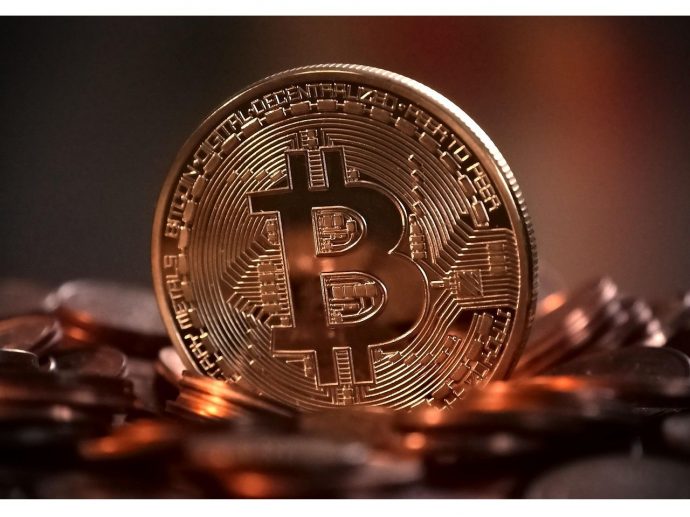Categories more
- Adventures (17)
- Arts / Collectables (15)
- Automotive (37)
- Aviation (11)
- Bath, Body, & Health (77)
- Children (6)
- Cigars / Spirits (32)
- Cuisine (16)
- Design/Architecture (22)
- Electronics (13)
- Entertainment (4)
- Event Planning (5)
- Fashion (46)
- Finance (9)
- Gifts / Misc (6)
- Home Decor (45)
- Jewelry (41)
- Pets (3)
- Philanthropy (1)
- Real Estate (16)
- Services (23)
- Sports / Golf (14)
- Vacation / Travel (60)
- Watches / Pens (15)
- Wines / Vines (24)
- Yachting / Boating (17)
How to Become an Investor in Bitcoin
Published
04/01/2025Investing in Bitcoin can be an exciting experience. Its high volatility and potential for big returns attract many people to cryptocurrency. However, starting in this area can feel overwhelming, especially if you are new to digital currencies. It's important to understand the basics of Bitcoin, how to buy it, and investment strategies before you dive in. With the rise of Bitcoin ATMs, buying Bitcoin has become easier.
Here's a guide to becoming an investor in Bitcoin.
Understanding Bitcoin
Bitcoin is a digital currency that runs on a decentralized blockchain network. Unlike traditional money, Bitcoin has no central authority regulating it, allowing users to transact directly with each other. This independence has gained Bitcoin a loyal following. Its value can change significantly—sometimes drastically within a single day—but many investors see this volatility as a chance to profit.
To invest in Bitcoin, you need to understand how it works. Learn about wallets, private keys, and exchanges. A wallet is where you store your Bitcoin, while exchanges are platforms where you can buy, sell, or trade cryptocurrencies. With this basic knowledge, you can make better decisions and navigate the market more efficiently.
Bitcoin ATMs
One of the recent developments in Bitcoin is Bitcoin ATMs. These machines simplify buying and sometimes selling Bitcoin using cash or debit cards. Using a Bitcoin ATM is like using a regular ATM. You approach the machine, scan a QR code from your mobile wallet, insert cash or swipe your card, and own Bitcoin!
A Bitcoin ATM is convenient because you don't need to set up an account or verify your identity for small purchases. This accessibility is great for newcomers who want to try crypto without dealing with complex online platforms. These ATMs appear in more locations, so you can easily find one nearby and make transactions when it suits you.
Choosing an Exchange
When you're ready to invest in Bitcoin, choose a cryptocurrency exchange. This platform is where you will manage your Bitcoin investments. Popular options include Coinbase, Binance, and Kraken. Each offers different features and charges other fees. Take time to research which one best meets your needs. Look for easy-to-use platforms, lower costs, and strong security.
To set up your account, you must verify your identity by submitting some identification. This step helps protect your investments and prevents fraud, so it's important. After setting up your account, you can deposit money and buy Bitcoin. It's wise to start with small amounts as you learn how trading works.
Secure Your Investment
Keeping your Bitcoin safe is very important. Because your funds are digital, you need to take steps to protect them. While exchanges have security features, you should also enhance your protection. Using a hardware wallet is one effective way to store your Bitcoin safely. These devices keep your private keys offline, making it harder for hackers to access your funds.
Also, turn on two-factor authentication for your exchange accounts. This adds an extra security layer by requiring a second form of identification when you log in or make transactions. Being careful and learning about security practices can help protect your investments.
Stay Informed and Engaged
The Bitcoin market can change quickly, so it's essential to stay updated. Follow reliable sources, join online forums, and connect with others on social media. By interacting with fellow investors, you can share insights and tips that improve your understanding of market trends.
Many online resources, podcasts, and news sites offer valuable updates on Bitcoin and cryptocurrencies. These sources will help you make informed decisions and stay ahead of market changes.
Building Your Strategy
Now that you know the basics, creating your investment strategy is time. Think about how much you want to invest and how much risk you are willing to take. Some investors buy and hold Bitcoin for the long term, while others buy and sell based on market changes. Both approaches can work, but choose the one that feels right.
Remember to review and adjust your strategy regularly. Whether you hold for the long term or trade often, frequently assessing your investments and adapting to the market will help you make better decisions.















